Olive Oil Specific Weight, What It Is and How It Is Calculated
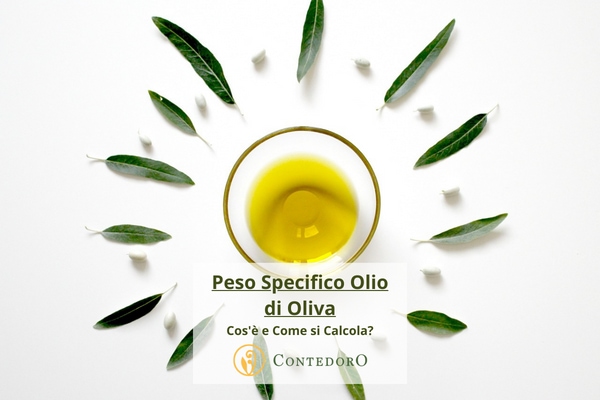
Reading time: 5 minutes
Specific gravity is a value that can be calculated for all materials, both solid and liquid. However, this measurement is, for some elements, more or less important.
In our case, it is very important to know the specific gravity of olive oil. We will see below why. Here we want to start with the definition of specific gravity and how it is calculated.
INDEX
- Specific Weight: What is it? Definition
- Specific gravity of olive oil
- Factors determining specific gravity
- Density of Oil
- How is it measured?
- Weight of Litre of Oil
- How much does a liter of oil weigh?
- Why is oil weighed in kilograms?
- Selling oil: beware of scams
- Usefulness of knowing the specific gravity of oil
- Conclusions

Specific Weight: What is it? Definition
We talk about specific gravity by defining it as the relationship between weight and volume of a substance. Let’s take a practical example with the specific gravity of water. If we measure on a kitchen scale 1 lt of water (after removing the tare of the bottle) it will weigh about 1 kg which corresponds to 1 cubic decimeter (1 dm3).
The specific gravity of a material is the ratio of weight to volume (Specific weight equals weight-expressed in kilograms-divided by volume-expressed in dm3).
Now that we understand from definition of specific gravity and how it is calculated, let’s go to check what the specific gravity of oil is.
Specific gravity of olive oil
Having defined that specific gravity is the relationship between weight in kg and volume, we can also say that the specific gravity of oil is 916 g per cubic decimeter. However, this is not always an accurate figure because the determination of specific gravity is caused by many factors that we will see below. The fact remains that these variations can result in an oil density of about 920 grams per cubic decimeter. The fluctuation in the specific gravity of oil can therefore vary between 916 and 920 grams. By convention, we consider the value of 916 gr.
Now, 916 g corresponds to 0.916 kg. Given above that the specific gravity of water is 1 kg, we have the answer of why oil floats in water: oil weighs less than water, so it tends to go to the surface. The experiment is simple: we add a drop of oil to a glass containing water. The viscous drop of oil rises to the surface.
Factors determining specific gravity
First and foremost, the variety of olives, the so-called cultivars. Italy is known for its multiplicity of varieties, each with different yields. From some of them, very dense oils can be obtained, while from others oils with a lower specific weight. For our oils, we at Contedoro, for example, use mainly Ravece and Ogliarole olives, because in addition to being typical of the Irpino area, they also give very profitable and quality oil yields.
Another factor that affects the specific gravity is the way in which the the extraction from the olives. Remember that the residue remaining after the olives are crushed will affect the density of the oil.
Finally, also affecting the specific gravity is the temperature of the crushing process. If you don’t know, the measurement of specific gravity is done at an oil temperature of 15 degrees.
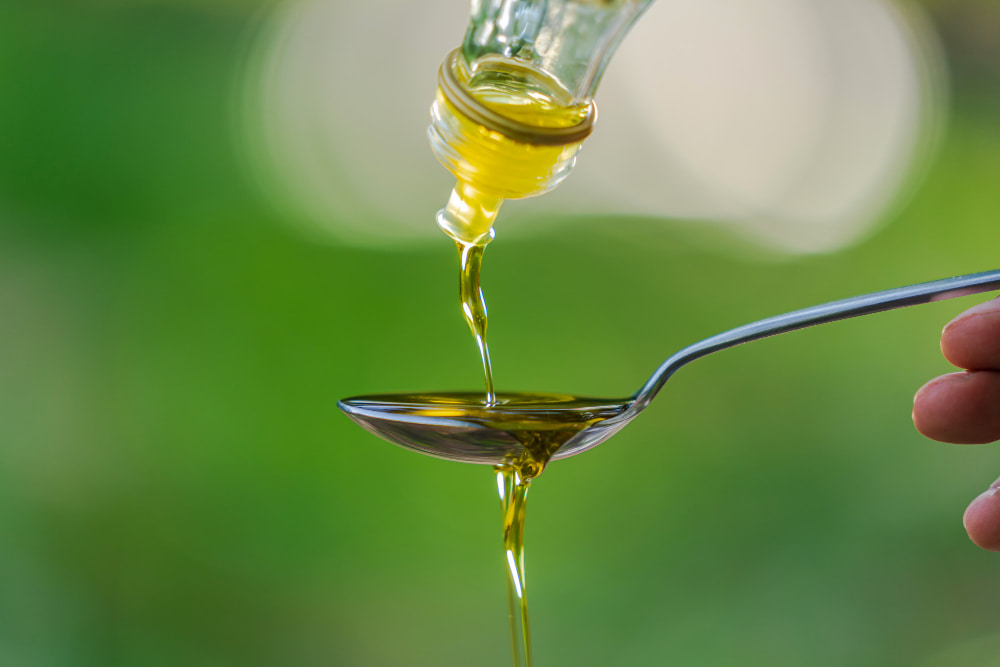
Summing up:
The specific gravity of olive oil is to be considered in relation to several characteristics that we list here:
- Olive variety (there are 500 varieties of olives each has a different yield);
- Degree of olive maturity;
- Crushing and filtration process (which affects depending on how much residue remains after crushing. Depending on the amount of this residue, we have less or more variation in the density of the oil – you can read more about this in our article on on-filtered oil)
- The temperature of the oil, which should be around 15° (have you ever noticed that when the oil is at a low temperature it has a smaller volume)?
- Soil fertility
These are all elements that we and other industry professionals hold in high regard because they determine the quality of our oil.
But why are we talking about our oil in kilograms and not liters.
Now that we have seen the specific gravity of oil and the factors that determine it, we can understand why.
Density of Oil
Oil density is a physical property that describes the mass of a unit volume of oil. Oil density is affected by several factors, including temperature, type of oil, and method of production. The density of oil can be an indicator of its quality and nutrient concentration. In addition, oil density can affect its viscosity, which is its ability to flow or resist flowing.
How is it measured?
To measure oil density, units such as grams per milliliter (g/mL) or kilograms per liter (kg/L) are used. Oil density can vary greatly depending on the type of oil.
For example, olive oil has a density of about 0.92 g/mL, while coconut oil has a density of about 0.92 g/mL. However, sunflower seed oil has a density of about 0.92 g/mL, which shows that oil density can be similar among different types of oil.
The density of oil can also vary with temperature. When oil is heated, its density decreases, which means it has a lower mass per unit volume. Conversely, when the oil cools, its density increases, which means it has a greater mass per unit volume. The change in oil density with temperature can affect its viscosity and its ability to flow.
For more information on oil density please contact us, we are always available to provide all technical explanations to those who are passionate about the subject!
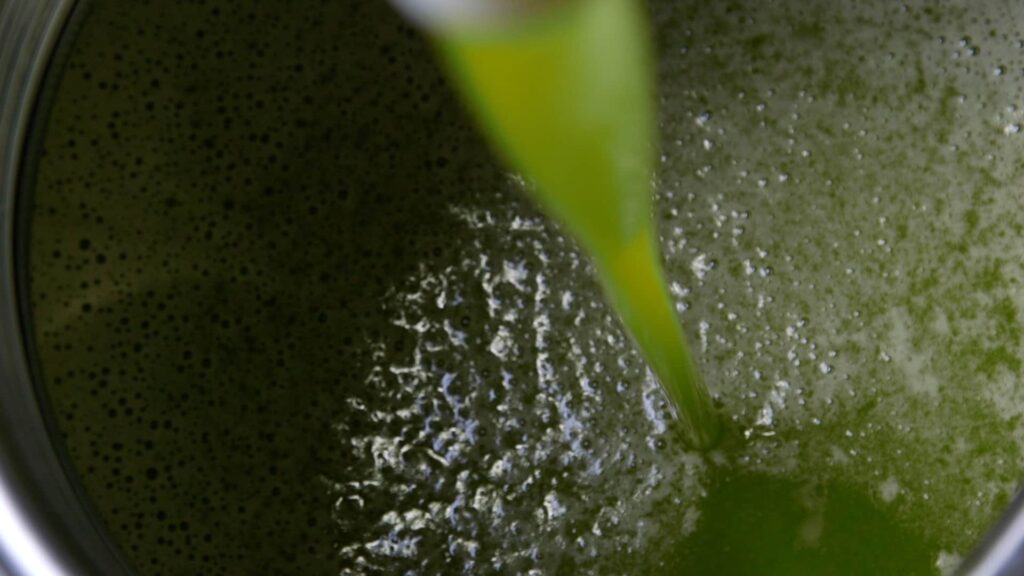
Weight of Litre of Oil
The weight of a liter of oil depends on its density. In general, oil has a lower density than water, which means it weighs less than water per unit volume. For example, water has a density of about 1 g/mL, while the density of oil can range from 0.80 to 0.98 g/mL. Thus, a liter of oil will always weigh less than a liter of water.
The specific gravity of a liter of oil depends on its specific density. For example,if the oil has a density of 0.92 g/mL, then one liter of oil will weigh about 920 grams or 0.92 kilograms. However, if the oil has a different density, then the weight of a liter of oil will be different.
For more information on oil weight and density, you can check out our blog, you will find insights into the different properties of oil and the factors that influence its weight and density.
Understanding oil density and specific gravity is important, do not underestimate it. Knowing how to correctly measure oil density and specific gravity can help ensure food quality and safety, as well as optimize food production and storage processes.
Read also: EVO Oil Price, Here’s the Cost of Italian EVO Oil.
How much does a liter of oil weigh?
Above we answered the question, “How much does a liter of water weigh?”
We have seen that one liter of water corresponds to one kilogram.
But if you were wondering how much a liter of oil weighs, we now have the answer: 1 liter of oil weighs 916 g. Knowing this value is important to understand that, when buying oil, liters and kilograms are not the same (as they can be for water). On the contrary, it is good to know that if you are buying 10 kg of oil, you are buying almost 11 liters (10.91 l). Conversely, if you are buying 10 lt of oil, it will weigh 9.16 kg.
That said, we can say that oil is denser than water, and it is the specific gravity that determines its density.
But now, why is oil weighed in kilograms at the mill? We will see after evaluating what factors determine the specific gravity of olive oil.
Why is oil weighed in kilograms?
We measure our oil in kilograms simply because the raw material from which we produce it is measured by its weight, in kilograms. Our olives are solid elements that we weigh in kilograms, and to determine their yield once the oil is produced, we must use the same unit of measurement.
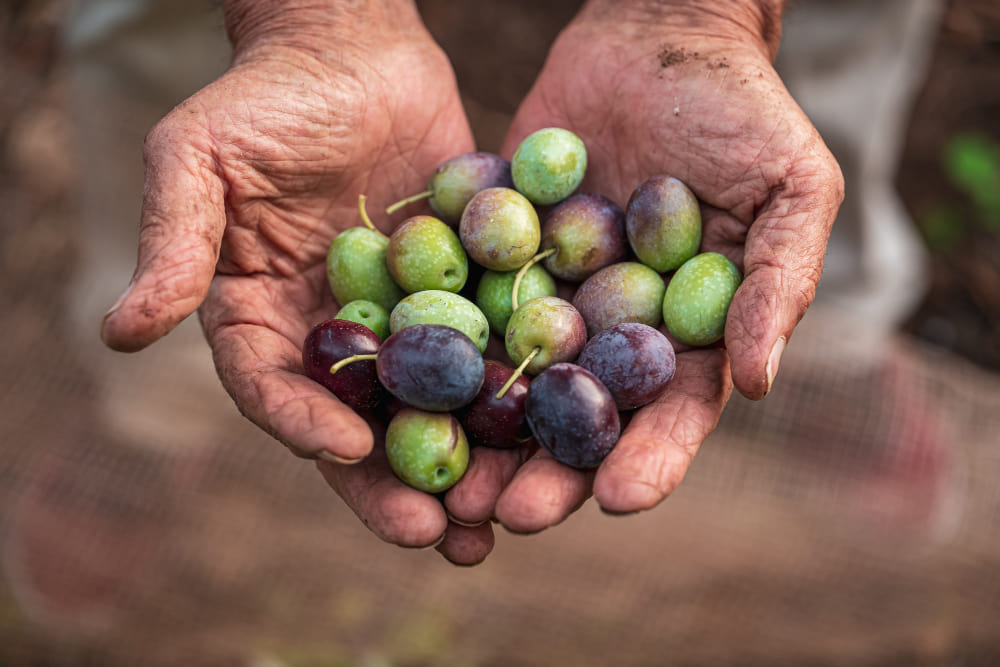
However, when we buy oil, we need to know that, given everything we have seen above, the one-liter bottle of oil will weigh 0.916 kg. It is common practice to sell it in liters so as not to confuse the consumer who might think they have been ripped off. However, we know that if we want to put 10 kg of oil in 10 one-liter bottles, these will not be enough.
But still, we want you to better understand why it is convenient to know the specific gravity of oil. Let’s take a practical example to convert the weight of oil to liters.
Suppose you have 1000 kg of olives and 200 kg of oil is extracted from them. Knowing that the specific gravity of the oil is 0.916, in order to know how many liters we have produced, simply divide the yield in kg by 0.916.
In short, we will have produced 218.34 liters of oil.
Selling oil: beware of scams
Knowing all these facts about olive oil allows consumers to stay alert to scams with respect to olive oil.
It was 2018 when we Italian oil producers suffered a sharp drop in sales due to some famous Italian companies selling their brands to foreign productions, such as Spanish or Moroccan.
In this situation, the damage has been twofold: we Italian producers who have had significant slices of the market stolen from us, and you consumers who have had poor quality oil on your tables unknowingly. The characteristics of these oils are inferior to those produced in our territory and the production methods are not state-of-the-art. However, they have been able to “trick” the consumer by offering tempting prices, branded with famous brands.
Usefulness of knowing the specific gravity of oil
That is why we insist on letting you know the importance of the specific gravity value of oil. Better pay attention to the technical characteristics of the oil and its origin before making a wrong purchase.
In any case, it is best to buy directly from your trusted oil mill, which will be able to provide you with all the relevant guidance.
Visit our shop here or contact us for information.
Conclusions
Extra virgin olive oil is a very valuable product for our beloved Italy and is often subject precisely to counterfeiting. So to be sure that you are buying a quality oil, in addition to considering the specific weight, always go to a trusted retailer or oil mill.
We at Contedoro are very transparent about our production and sales methods, so if you want to know and learn all the dynamics of production, we are waiting for you at the farm to guide you through the world of Extra Virgin Olive Oil, among the scents and flavors of a land that tastes green.
-
 Oil Ravece
Oil Ravece -
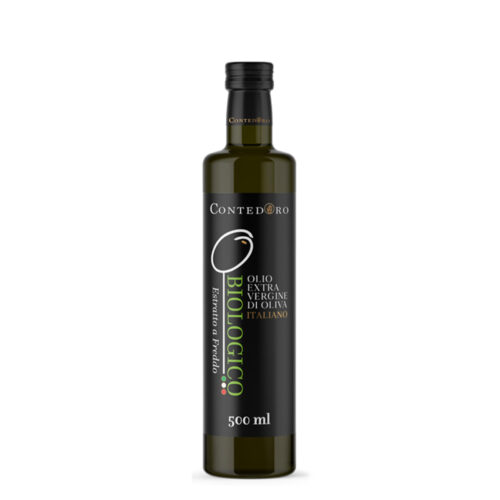 Organic Extra Virgin Olive Oil
Organic Extra Virgin Olive Oil -
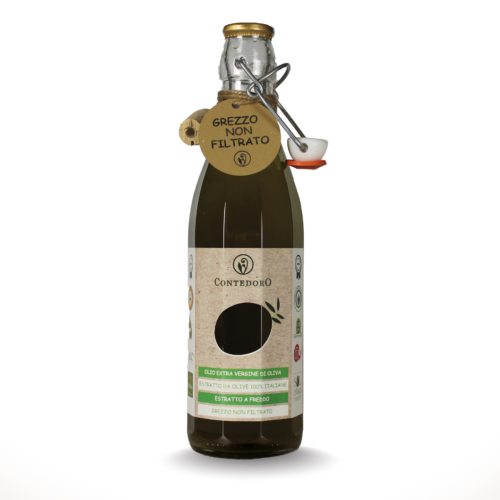 Raw Oil – Unfiltered EVO 0.50 and 5Lt.
Raw Oil – Unfiltered EVO 0.50 and 5Lt. -
 GOLD selection
GOLD selection -
 ALF – Ravece Selection
ALF – Ravece Selection -
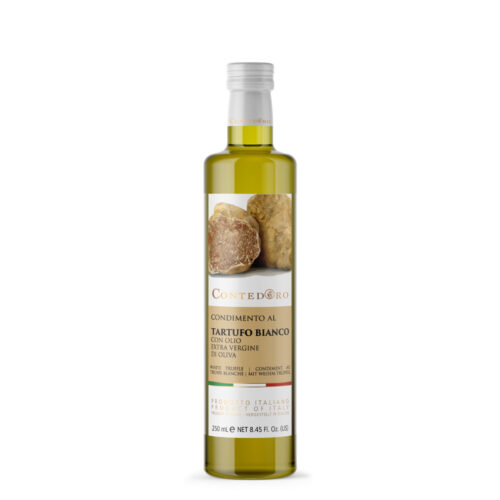 Extra virgin olive oil flavored with white truffle
Extra virgin olive oil flavored with white truffle -
 Extra virgin olive oil flavored with black truffle
Extra virgin olive oil flavored with black truffle -
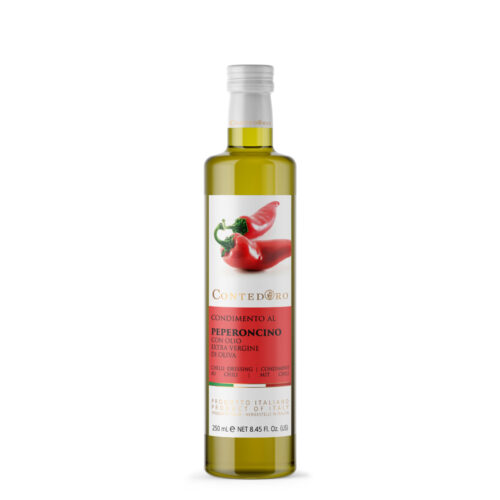 Chili pepper flavored extra virgin olive oil
Chili pepper flavored extra virgin olive oil -
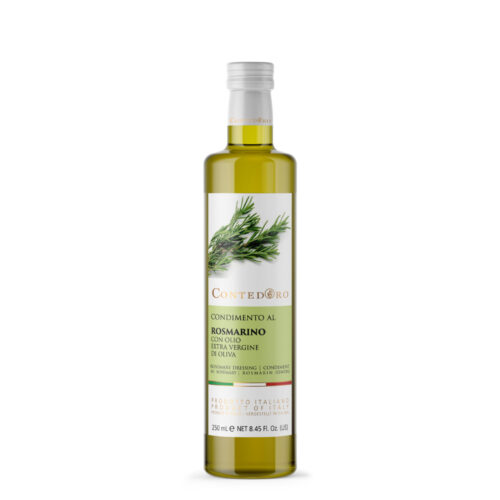 Extra virgin olive oil flavored with rosemary
Extra virgin olive oil flavored with rosemary -
 Basil-flavored extra virgin olive oil
Basil-flavored extra virgin olive oil -
 Lemon-flavored extra virgin olive oil
Lemon-flavored extra virgin olive oil -
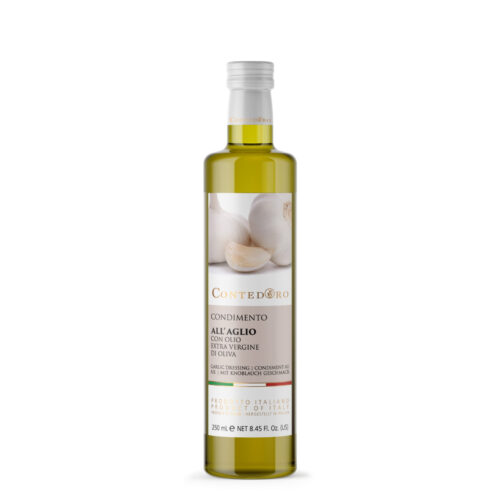 Garlic-flavored extra virgin olive oil
Garlic-flavored extra virgin olive oil

Alfio Lo Conte
Tecnico ed esperto degli oli extravergini di oliva, iscritto nell’Elenco Nazionale sezione Campania.
Maestro di frantoio con diploma, conseguito presso International Extravirgin Agency.
Read more articles by: Alfio Lo Conte
Recent Comments